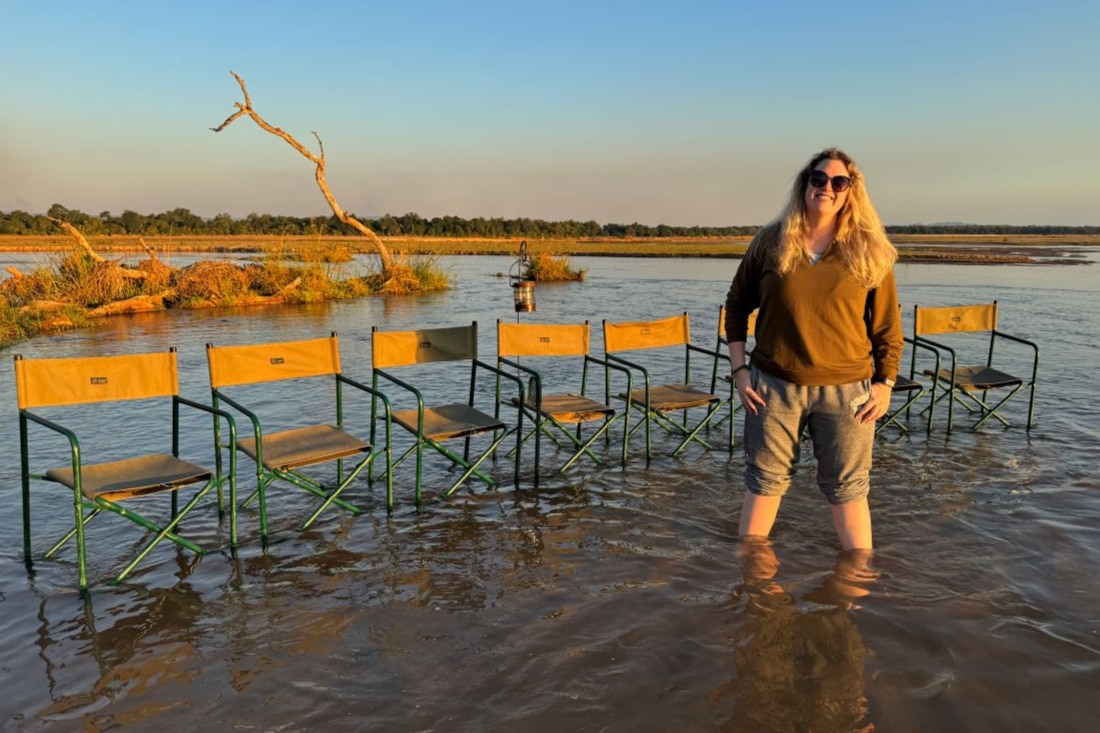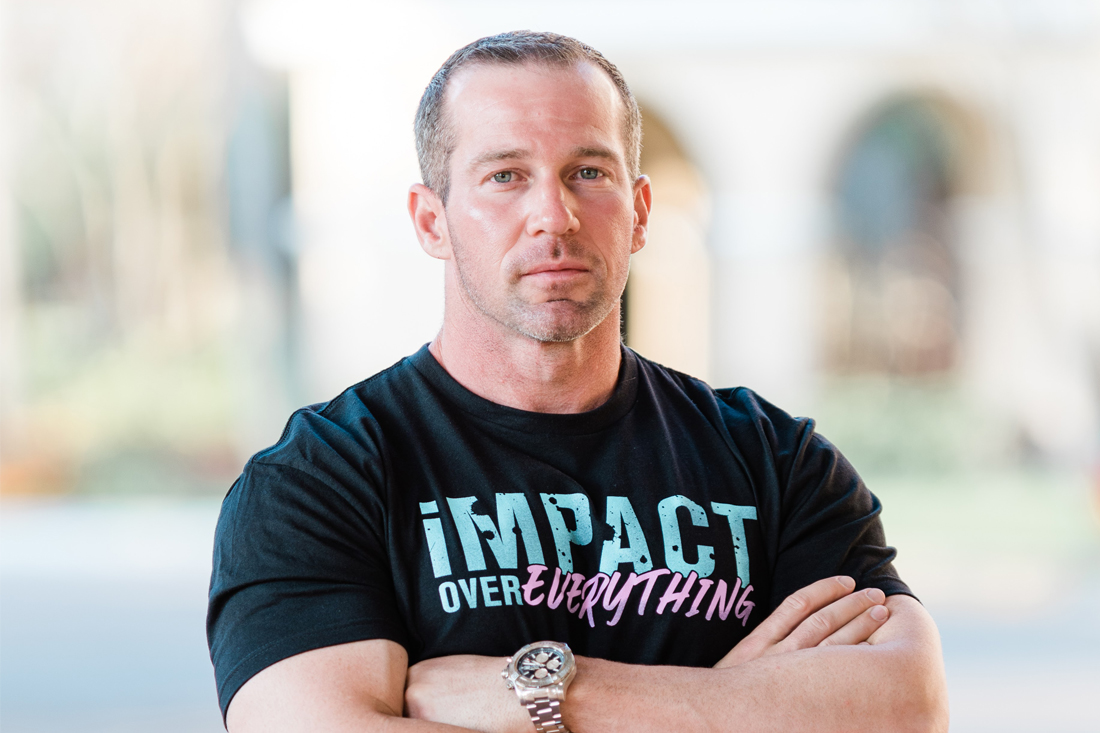While I love the convenience of smartphones, I don’t love how accurate my phone’s data collection is because I can’t unknow my dire screen time stats. I check emails incessantly, I’m always trawling socials for ideas, cat videos never lose their entertainment value and I’ve usually got around 20 WhatsApp chats on the go. When a press trip opportunity arose to go on a safari in South Luangwa, Zambia, I was tempted, but I froze while reading the remote bush camp description. No Wi-Fi. No cellphone signal. A return to the Stone Age, albeit in luxury tents.
“Is this like a ‘we encourage you to get offline’ vibe?” I asked the public relations rep, the recent season of The White Lotus coming to mind.
“No, there’s no way to get online,” she explained, brightly informing me that at least some of the fully offline days would fall over a weekend. Great.
The lure of South Luangwa, a park I’d never been to, was stronger than my concerns over disconnection, so I agreed. My Outlook had a meltdown the day before I left, leaving me with unreliable email syncing and a broken out-of-office function. I arrived in Mfuwe convinced I’d return to a tanked writing career.
Trading notifications for nature
After driving several hours into South Luangwa, we arrived at the Bushcamp Company’s Bilimungwe. Back at Mfuwe Lodge (which has limited Wi-Fi), one of the managers has our next-of-kin contact details. Our guide, Suzyo Zimba, will radio her at the end of each day to confirm we’re safe, and she’ll then update our families.
I anticipated addict-like withdrawals, but other than a couple of muscle-memory moments, where I whipped out my phone to open my camera and checked email by default, there was no magnetic pull to the device that ordinarily runs my life. With around six waking hours each day spent on game drives, I was otherwise occupied. And when we weren’t driving, we were chatting around the fire or stretching out on the provided yoga mats.
If a travel writer sees a leopard but can’t share on socials, did she really see it? After seeing just two leopards in my entire life, I saw eight in a single week. We saw herds of buffalo crossing rivers, elephants mud-bathing right in front of our chalets, fish eagles circling for prey and lion prides surrounding our vehicle. Even in moments of stress, like an elephant’s mock charge or when two leopards fought over a kill within yards of us, I felt calmer than I have in ages, throwing into sharp focus just how much “noise” my connectivity causes.
The absence of hours on social media was blissful—I couldn’t feel guilty about how much I’ve neglected my LinkedIn presence when posting an update was impossible. I couldn’t investigate a new workout trend that I saw on Instagram because my only exercise was safari walks while looking out for hippos. The absence of news of any kind was like a deep exhale.
After the morning game drive, we’d have brunch with fresh produce grown on The Farm and then a siesta. Surely, daily downtime would be when the tech withdrawals hit hardest? Instead, I napped—something I never do. I shared an outdoor shower with baboons high in the trees overhead, pelting me with squishy fruits and twigs. “The elephants were right outside the patio again,” the PR, Cecilia, told me later. “I just couldn’t tell any of you because the message couldn’t be sent.”
The science says so
Researchers during a monthlong trial looked at how removing constant internet access on smartphones impacted psychological functioning: 91% of the participants improved on at least one of the following measures: mental health, subjective well-being and ability to sustain attention.
After a few days, we moved to the newly revamped Chindeni. Management organized a satellite Wi-Fi area that we could connect to if we chose. I opened my connection settings, ready to enter the password and then froze. Looking at the sprawling deck, propped over the oxbow lagoon, the mountains reflecting in the still water, I imagined entering the password and seeing hundreds of notifications exploding across my screen, instead of appreciating the beauty of my surroundings. Scarcely believing my own movements, I took a photo and then slid my phone into my pocket, unconnected. While this satellite option was temporarily on offer, being offline was a choice I wanted to make. Like the subjects in the study, I felt better.
The surprising side effects of disconnection
I didn’t anticipate that being offline would make me more creative. Back in my home office, I often find myself staring at my laptop, willing the ideas to flow. Out there, I couldn’t stop them, my notes were full. Most were related to my work, article ideas or newsletter topics, but others were broader. Should I start watercolor painting lessons? Is there room on my patio for a herb garden? If I move to the coast, how difficult would it be to strap a kayak to my car?
Our second game drive each day included scenic sundowners, though none quite so spectacular as when the team set up camper chairs in the river. They tended a coal-fire barbecue, grilling chicken wings and kebabs. The water was warm, streaming around our calves as we sipped Amarula on ice, laughing about the day.
That research study showed that participants’ improvements are linked to how people spent their disconnected time—socializing in person, exercising and being in nature. Check, check, and check.
After a week of no connection, it felt strange logging in at the airport hotel. It was a notification bombardment: unread DMs, emails, WhatsApps, app notifications, calendar reminders, the works. I started with messages from loved ones, the people I’d missed most. “Your ‘last seen at’ was a week ago—are you OK?” a text from a friend read. The thing is, I was better than OK. I felt rested, focused and creative—something that’s not always a guarantee, even after longer vacations. This was a working press trip—I was interviewing and taking notes constantly. We woke at 5 a.m. each day. It should have been exhausting, but I felt fresher than I have in years.
The beauty of the nature around me was one part. The sheer joy I felt on safari was another. The prolonged lack of connectivity was, strangely, the biggest contributor. My time in the remote camps of South Luangwa made me realize just how “on” I am in my daily life—constantly accessible, constantly communicating, constantly… constant for everyone else. The reprieve, brief though it was, felt like adding a charged battery pack to my mind and body.
Bringing the bush home with me
Now that I’m home, I’m trying to keep the momentum of disconnectivity going (although, sadly, leopards being part of the daily routine is not an option). I’ve set up new focus modes on my phone, allowing only the most crucial notifications during my working day. I’ve reduced the time limits I had on apps like Facebook, Instagram and TikTok, my phone notifying me when I’ve scrolled too much. I try to check my email only twice daily, rather than disrupting tasks each time a new one comes in.
When I make a cup of coffee, I don’t scroll or reply to messages. I drink it without distraction, looking out my window. I engage in basic grounding techniques, thinking about what I can taste, the birdcalls I can hear, the shades of green I can see on the grass outside my office and the scent of the lemongrass candle. When my cats jump up on my lap, I stop writing and spend a few minutes snuggling them. Few things are so urgent that they can’t tolerate a 10-minute delay.
I follow the study’s findings—cut down on online time, but also socialize in person, exercise and get into nature. Instead of messaging a friend who lives in my city, we make plans to meet up for a walk in a week. Each element on its own feels small, but the cumulative effect makes a difference.
My week on safari in Zambia was a much-needed reset, but the little habits it inspired allow me to tune out more often at home. Sure, there’s no thrill like seeing a leopard in the wild (and I did immediately post a pic when I was back online), but the next best thing is creating intentional space in my day to appreciate the beauty of my ordinary life. And, for future trips, I welcome the chance to unplug so I can recharge again.
Photo courtesy of Tayla Blaire








